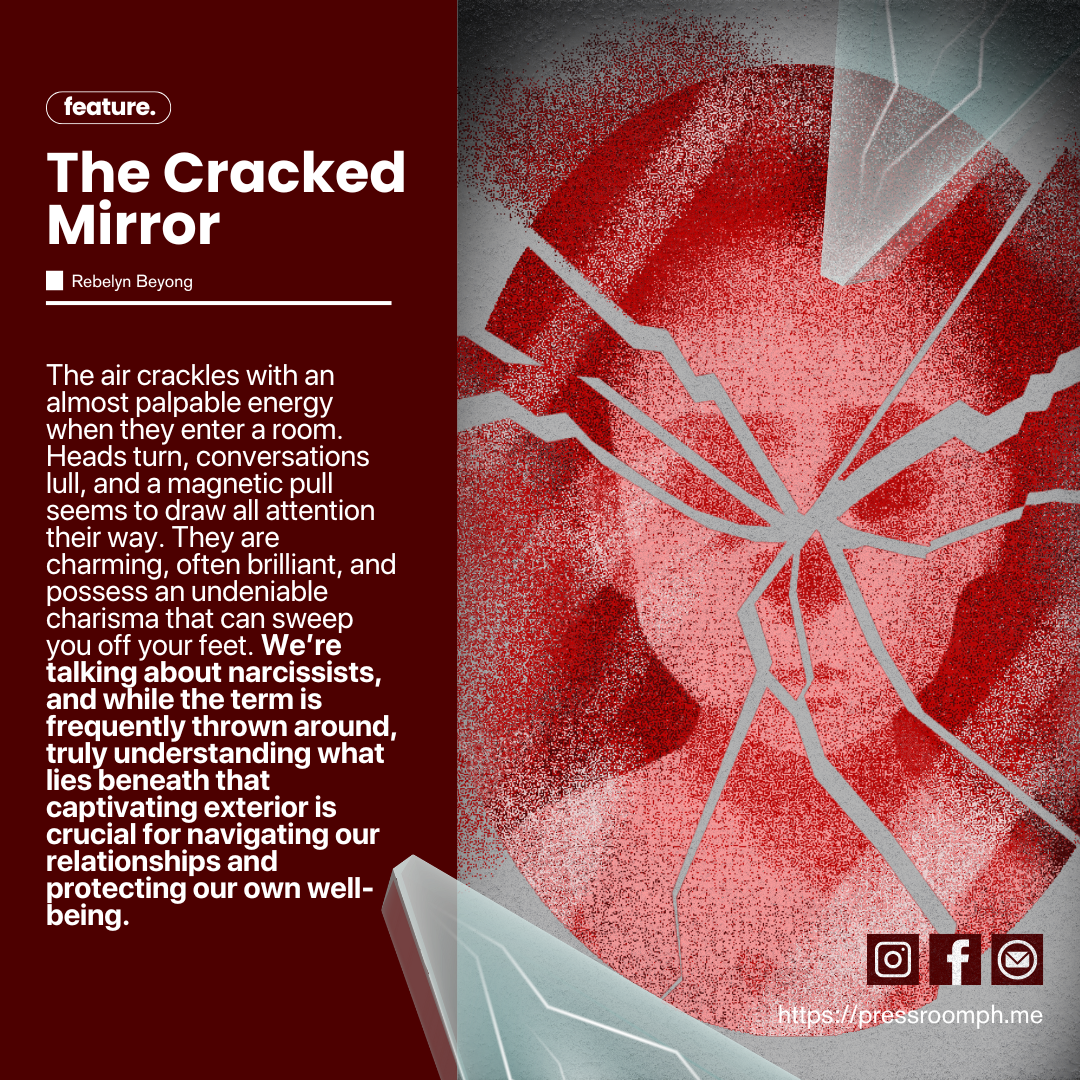The air crackles with an almost palpable energy when they enter a room. Heads turn, conversations lull, and a magnetic pull seems to draw all attention their way. They are charming, often brilliant, and possess an undeniable charisma that can sweep you off your feet. We’re talking about narcissists, and while the term is frequently thrown around, truly understanding what lies beneath that captivating exterior is crucial for navigating our relationships and protecting our own well-being.
This isn’t just about someone who loves a good selfie or is a bit self-absorbed. We're delving into a complex personality structure, a deep-seated pattern of grandiosity, a desperate need for admiration, and a startling lack of empathy. If you’ve ever felt drained, dismissed, or utterly bewildered after an interaction, you might have encountered the echo chamber of a narcissist’s world – a place where their voice is amplified, and yours, if it’s heard at all, is merely a faint echo.
Shimmering mirage
Imagine a shimmering oasis in the desert – beautiful, inviting, promising relief. That’s often how a narcissist first appears. They are masters of impression management, crafting a dazzling facade of success, confidence, and desirability. In the beginning, they might shower you with attention, praise, and grand gestures, making you feel like the most important person in the world. This is the "love bombing" phase, and it’s intoxicating. They seem to understand you better than anyone, echoing your hopes and dreams, reflecting back to you an idealized version of yourself.
But this reflection is a mirage. Their intense focus isn’t truly about you; it's about what you can provide: adoration, validation, a mirror to their inflated self-image. They are expertly gathering "narcissistic supply," the fuel that feeds their fragile ego. This initial intensity creates a powerful bond, making it incredibly difficult to see the cracks that will inevitably appear.
Fragile core
What drives this insatiable hunger for admiration? Paradoxically, it’s often a profound sense of insecurity and a deeply wounded self. Grandiosity isn’t genuine confidence; it’s a defense mechanism, a shield against feelings of inadequacy that lurk just beneath the surface. They’ve likely developed this coping mechanism early in life, perhaps due to inconsistent parenting, excessive praise without substance, or even trauma. They learned that to survive, they needed to project an image of perfection, to be constantly admired, because their true self felt unlovable.
This fragility is why they are so hypersensitive to criticism, no matter how constructive. Any perceived slight can trigger a "narcissistic injury," leading to explosive anger, cold withdrawal, or blame-shifting. They cannot tolerate being anything less than perfect in their own eyes, and by extension, in the eyes of others.
When your needs vanish
As the relationship progresses, the shimmering mirage begins to fade. The boundless attention you once received dwindles, replaced by a self-centered focus that leaves little room for your own needs or feelings. Conversations become monologues where they are the perpetual protagonist. Your achievements are minimized, your concerns dismissed, and your emotions invalidated.
Empathy, the cornerstone of healthy relationships, is largely absent in a narcissist's repertoire. They struggle to genuinely understand or share the feelings of others. To them, emotions are often seen as weaknesses or tools to manipulate. This lack of empathy is perhaps the most defining and damaging characteristic, as it allows them to exploit, discard, and even harm others without true remorse. You become an extension of them, a supporting character in their grand narrative, rather than an individual with your own thoughts and feelings.
Hooks and leashes
Narcissists employ a range of manipulative tactics to maintain control and ensure a steady supply of attention. Gaslighting is a particularly insidious one, where they systematically deny your reality, making you doubt your own perceptions and sanity. They might tell you, "That never happened," or "You're too sensitive," eroding your confidence and making you question your memory.
Other tactics include projection (attributing their own negative traits to you), triangulation (pitting people against each other), and silent treatment (using withdrawal as punishment). These behaviors create a chaotic and unpredictable environment, leaving you constantly off-balance and desperate for their approval. You find yourself walking on eggshells, tailoring your words and actions to avoid their wrath or secure a fleeting moment of their attention.
Finding your own voice
Recognizing the patterns of narcissistic behavior is the first, crucial step towards protecting yourself. It's about understanding that their behavior isn't about you; it's about them and their deep-seated issues. You cannot fix a narcissist, nor can you change them. Their patterns are deeply ingrained, and they rarely see a need for change because their inflated self-perception tells them they are already perfect.
Setting firm boundaries is essential, and this can be incredibly challenging, as narcissists will often push back aggressively against any limits to their control. Learning to say "no," to prioritize your own well-being, and to disengage from their manipulative games is vital.
Sometimes, the healthiest choice is to distance yourself entirely. This might be a painful process, especially if the narcissist is a family member or a long-term partner. But remember, your mental and emotional health are paramount. Healing from a relationship with a narcissist often requires professional support to process the trauma and rebuild your sense of self.
Reclaiming your story
The journey of understanding and navigating relationships with narcissists is not about judgment, but about awareness. It’s about recognizing that beneath the dazzling facade lies a complex and often wounded individual, but one whose patterns of behavior can be deeply damaging to others. By understanding their world, we can choose not to become trapped in their echo chamber, but instead, to reclaim our own voices, honor our own needs, and build relationships that are founded on mutual respect, empathy, and genuine connection. Your story is yours to write, unburdened by the echoes of another's grandiosity.





